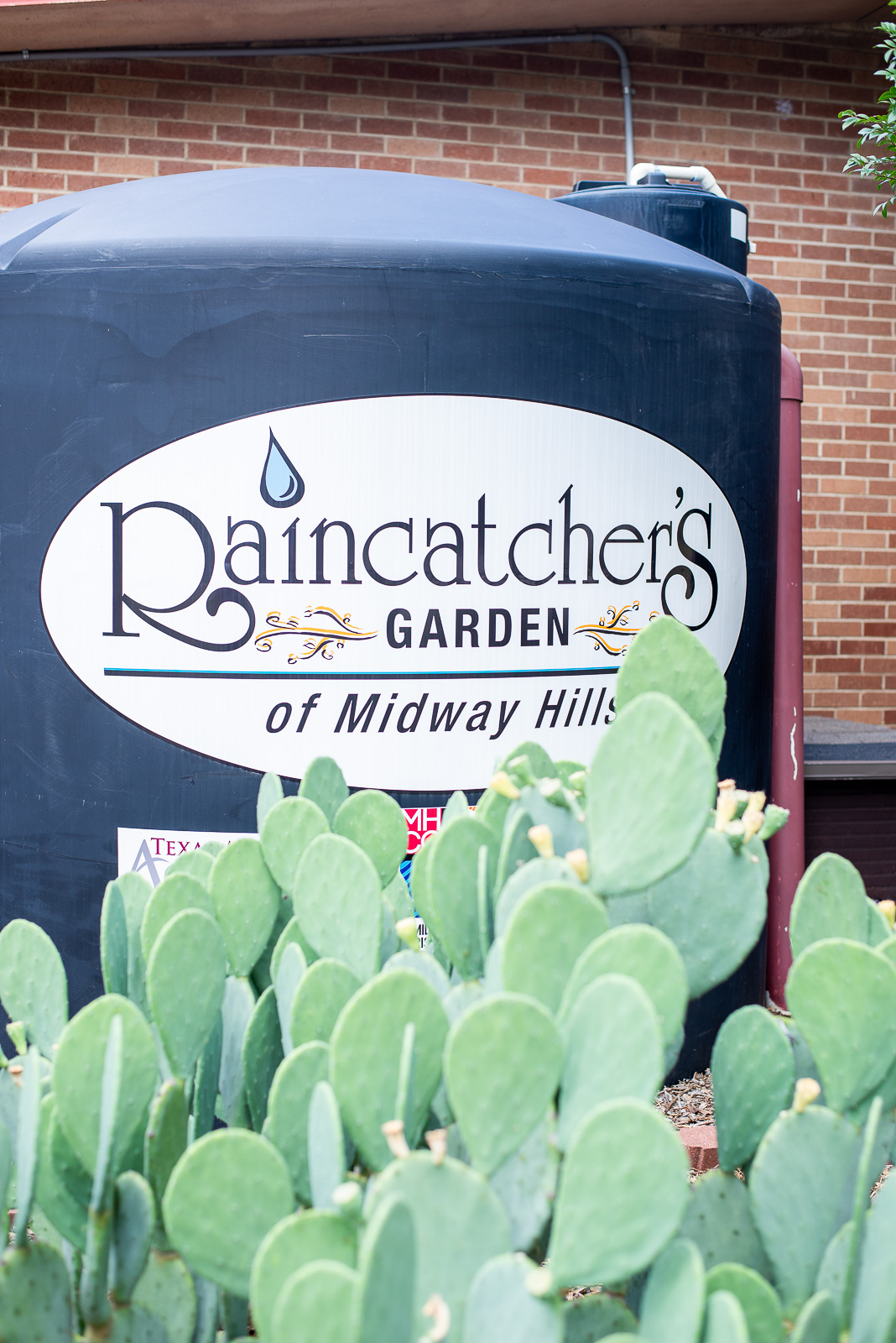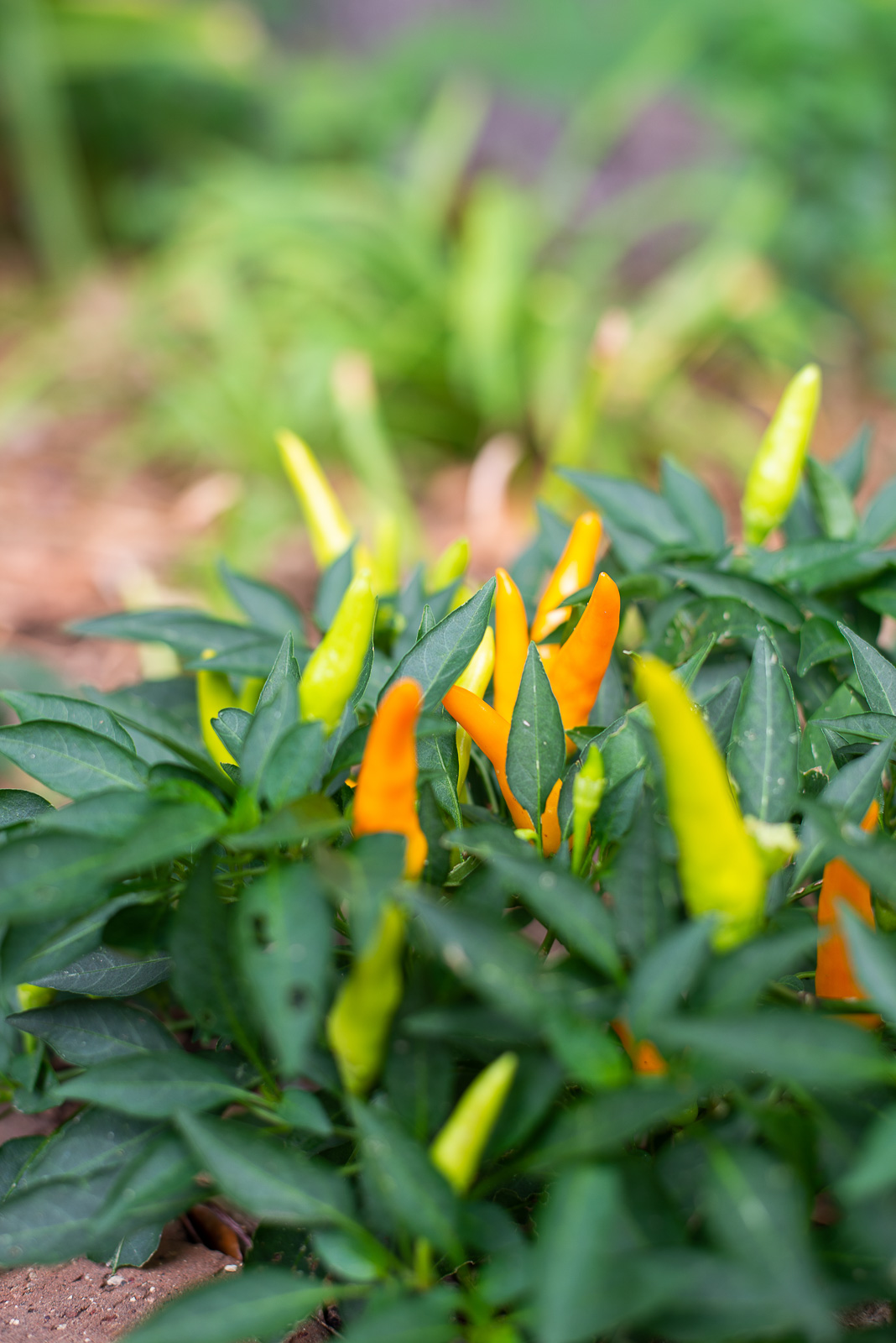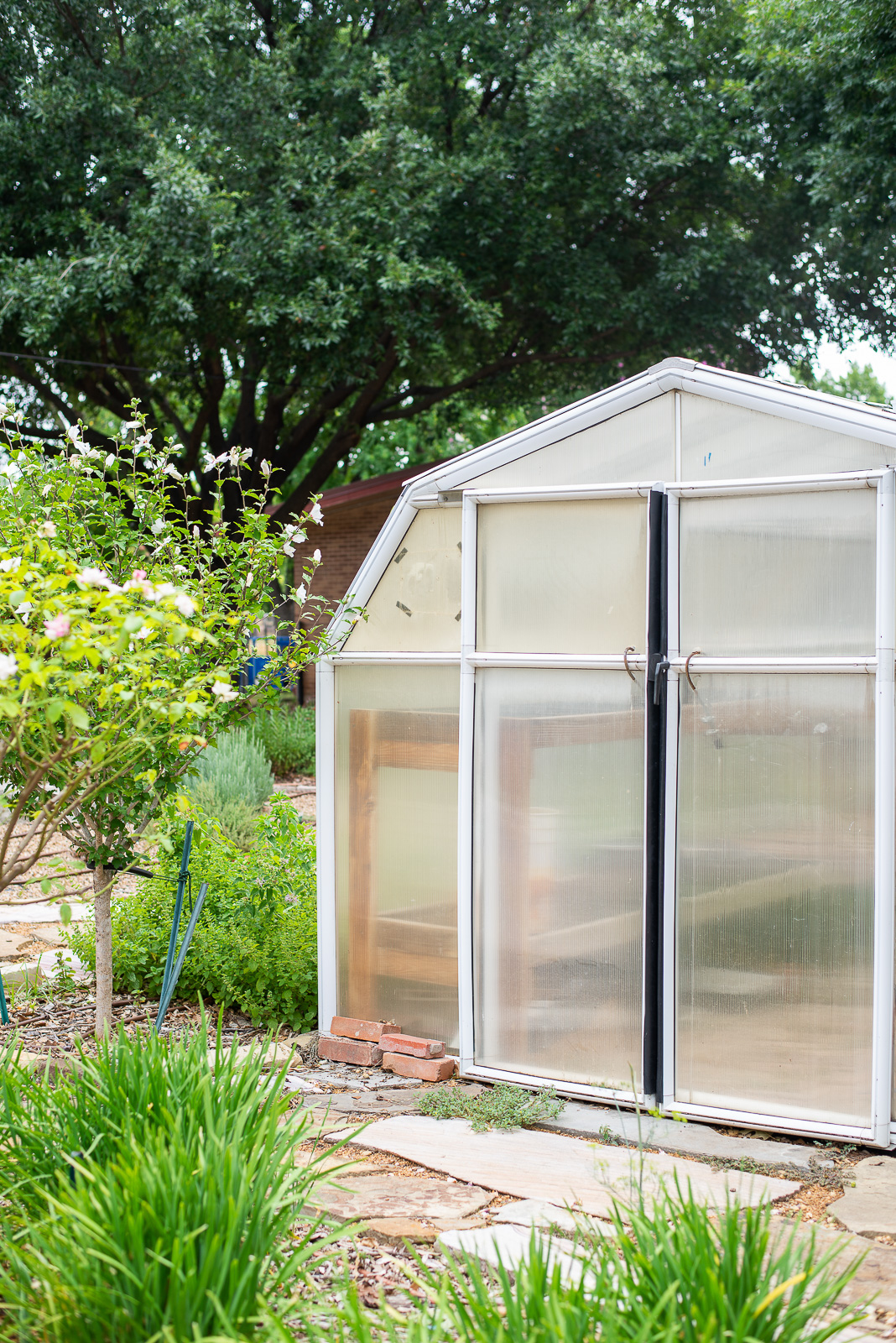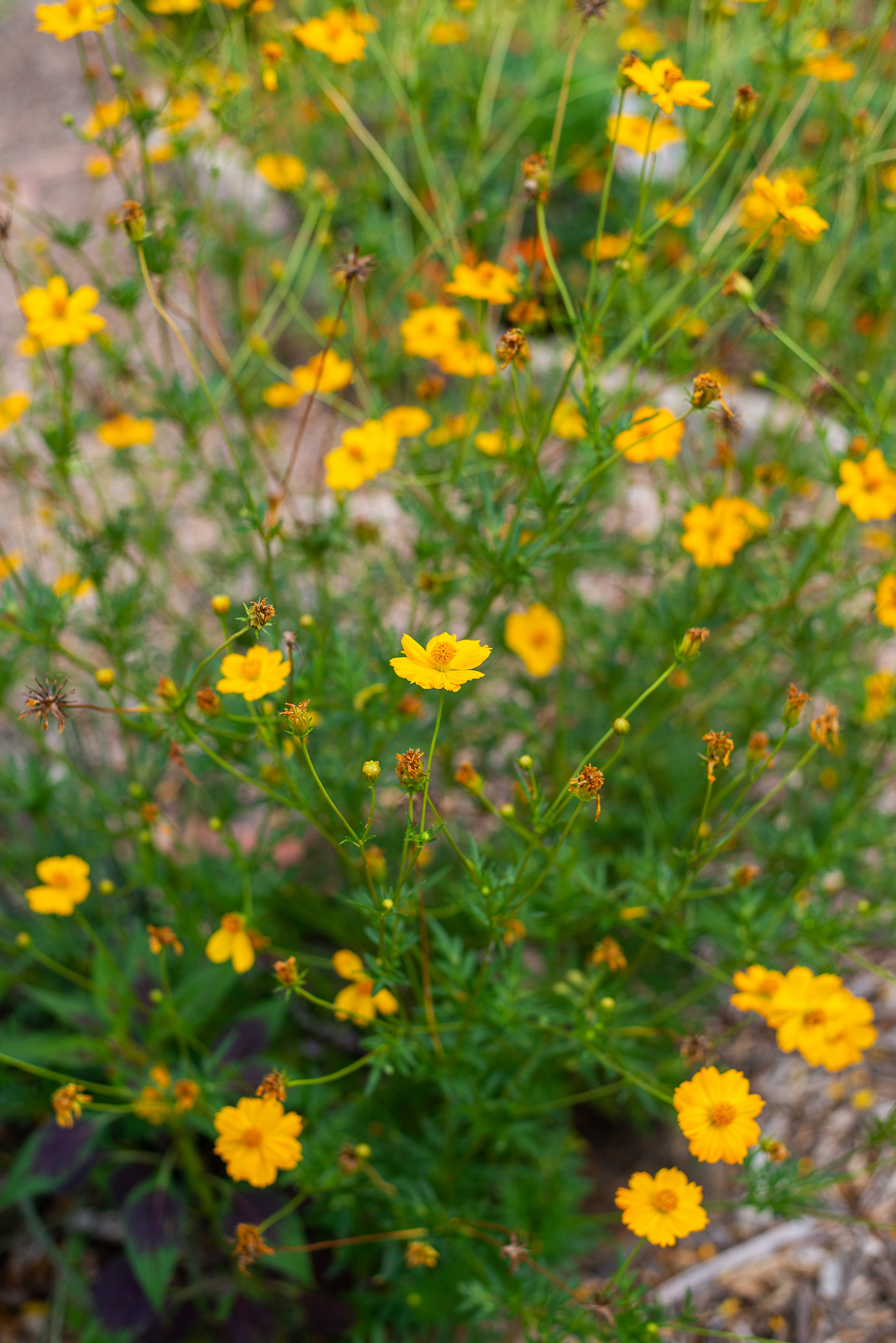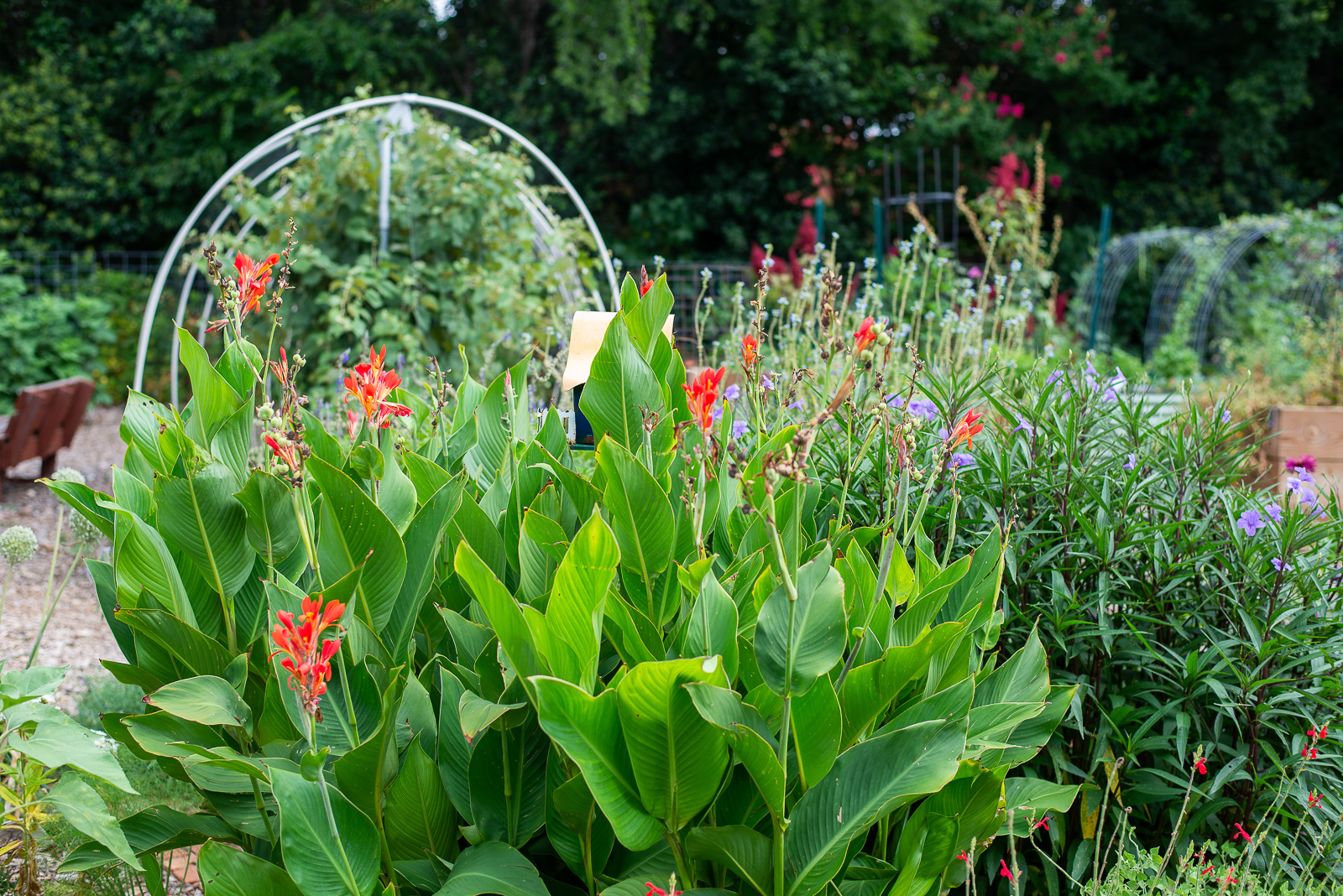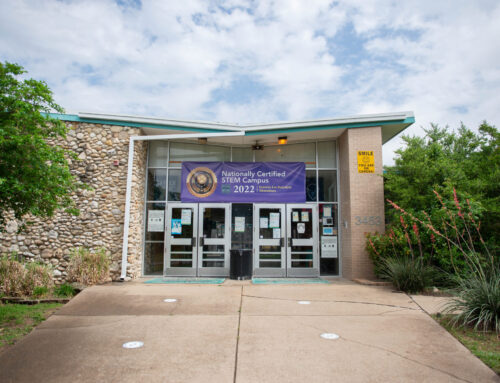Along Midway Road near Lovers Lane, nestled behind Midway Hills Christian Church, is a garden filled with herbs, vegetables, fruit and trees.
This is not a neighborhood garden. The Raincatcher’s Garden of Midway Hills is a place for education. The Dallas County Master Gardeners, volunteers who are part of a program through the Texas A&M AgriLife Extension Service, keep the garden running.
Each master gardener has completed 72 hours of intensive training and a year-long internship, with new classes of gardeners entering every year.
Master gardener volunteers work on the pollinator garden, fruit orchard, mixed border, landscape trees, wildflowers, foundation memorial beds, shade pavilion, composting, rain garden, sun beds, edible landscape and greenhouse to provide a variety of educational topics, from edibles to irrigation techniques.
Though supported through the Dallas County Master Gardener Association nonprofit, Raincatcher’s raises its own funds through making jam from fruit collected and selling flowers after they bloom.
“We kind of pride ourselves on being fairly sufficient because we’re a large garden like this,” Centala says.
Community members, Boy Scouts and students at the neighboring da Vinci School can frequently be seen walking around the garden, with leaders teaching the students about each vegetable and the growing techniques used by the master gardeners.
“We have not really resumed to our pre-pandemic levels,” says Lisa Centala, DCMG Class of 2010 graduate and co-leader of the Raincatcher’s Garden. “Pre-pandemic we would host one [group] a month here. Right now, it’s more informal education.”
Two tanks topping 5,000 gallons of water capacity can be seen from Midway Road, sporting the Raincatcher’s Garden of Midway Hills logo. The tanks collect rainwater for plants in the rain garden, which collects runoff from the tank. The water also leads to the irrigation systems in the North Garden, which decreases the amount of water wasted.
“It’s not just growing food. It’s being good stewards of the environment,” Centala says.
Many of the resources the garden uses are also donated by the community, such as mulch from area tree trimmers. The garden, in turn, gives back by donating produce to North Dallas Shared Ministries.
The biggest challenge Raincatcher’s faces is a lack of volunteers.
“It’s an informal organization, but you can’t run it all without having really dedicated volunteers,” Centala says. “You don’t have to do all the work. I just need you to be on the ground to tell me what needs to be purchased. Tell me what needs to be fixed. Tell me how many volunteers you need, and I’ll help recruit.”
Want to learn more about gardening or just take a stroll through the gardens? Signs around the site provide a QR code leading to PlantTAGG, a program that identifies plants in the garden and provides information for growing and maintaining them. Schools, churches, scout troops and other organizations interested in a tour can contact dallasgardenbuzz@gmail.com.


